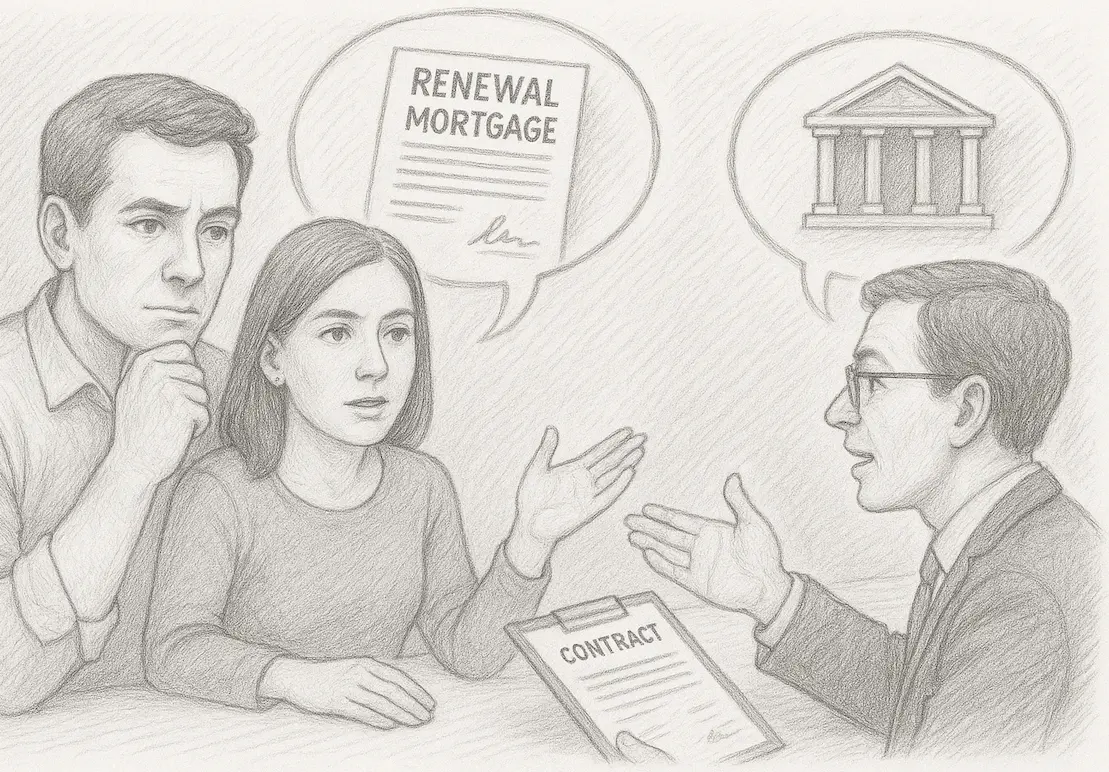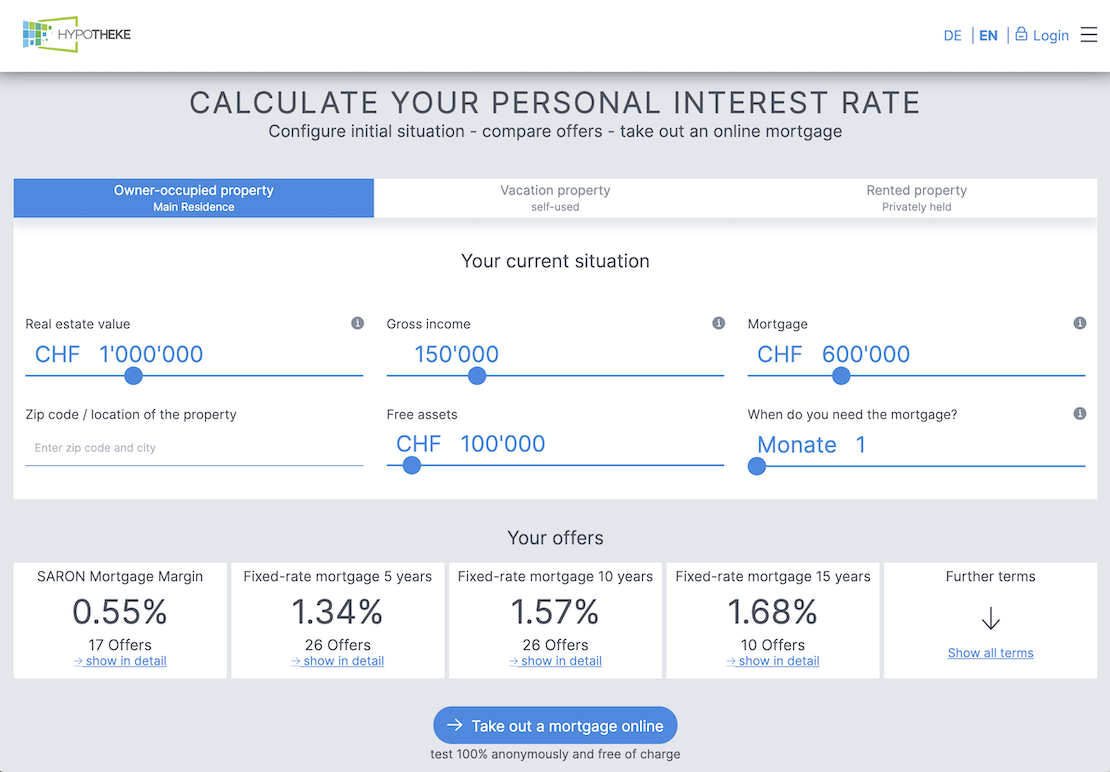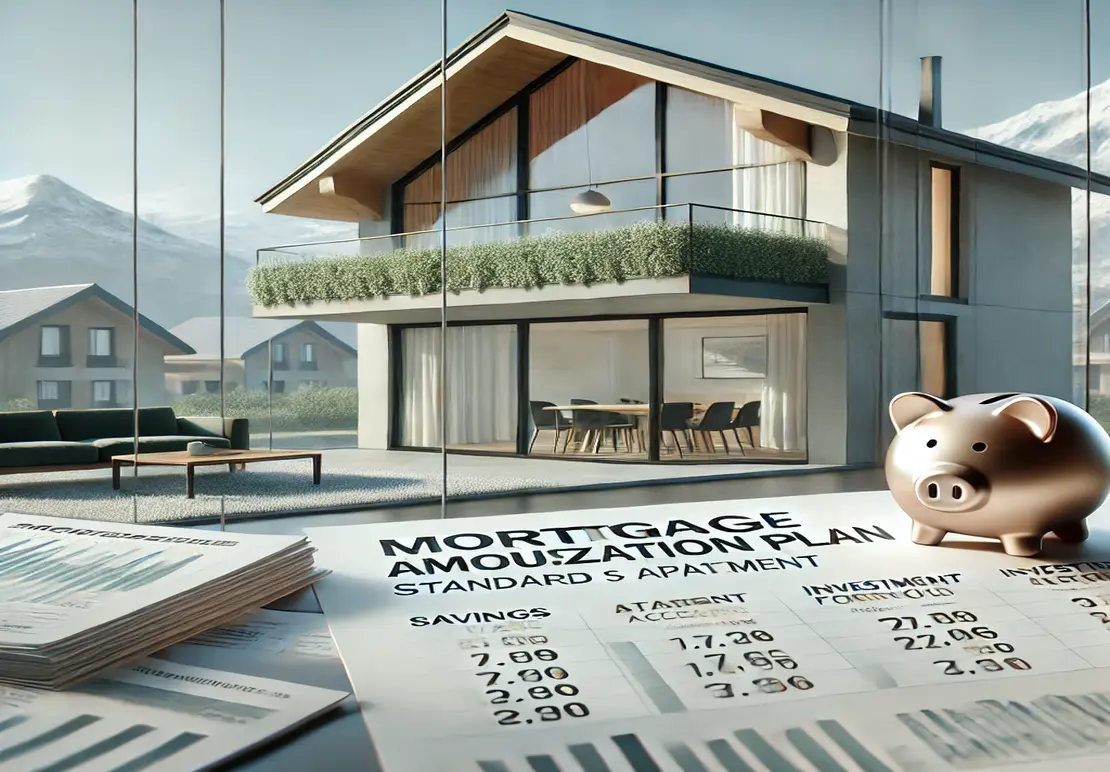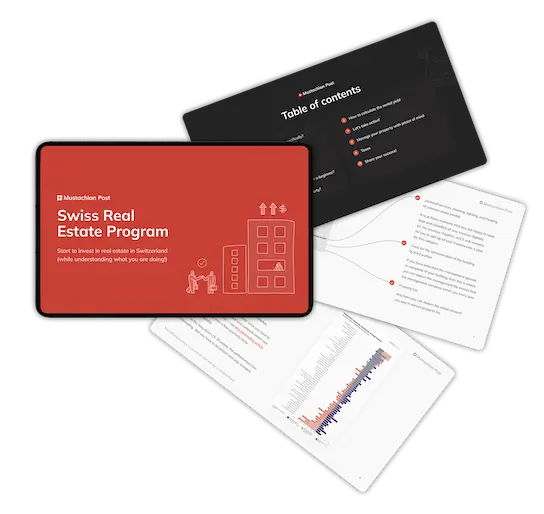“Nah, it was interesting to buy a rental property to understand the process and everything. But I realized that I’d rather invest in the stock market from behind my screen by buying 8'000 companies in one click. It’s so much easier, more liquid, and faster! Hence, I don’t think I’ll ever invest in real estate again.”
That was me a few months ago.
And then a real estate opportunity came out of nowhere — well, not that much actually, because it came via our real estate network built in 2019.
An acquaintance emailed us to say that he had decided to sell one of his properties.
And that he remembered that at the time we told him we might be interested.
Quick rental yield calculation
In addition to being unplanned, this property was located abroad (in France) whereas our focus from now on is on the Swiss market.
But since they were acquaintances, and their property was renovated and in good condition, I still took the time to analyze it all.
As usual, I used the calculator of Horiz.io (formerly rendementlocatif.com) to get the return on equity.
Usually, I’m looking at a range of 10-15% return on equity. In this case, since we were really not inclined to re-invest in this country, we were going to be even stricter and aim for 15-20%.
To achieve this, we first had to negotiate the sale price down by 15'000€.
Two e-mails later, the sellers were OK, because they knew us and knew that they would not have any bad surprises with the banks or at the notary’s office.
To be as close as possible to the 20% return on equity, we then had to tackle the financing.
110% financing
As it was not planned at all that we buy a second rental property in France, we really went for it without fear of losing the deal.
We wrote to our banker from the previous deal, explaining that we had a property in mind, but that he had to follow us at 110% for it to be really worth it.
And that if it wasn’t possible for him, we would understand, but we wouldn’t follow through.
A short break for the readers with awe in their eyes: But why would you borrow 110% of the rental property value?
Why borrow at 110%?
A 110% mortgage is used to finance the property at 100%, and to use the remaining 10% to pay notary fees and other bank charges. This allows the buyer to not have to disburse any equity when purchasing a property in France.
So basically when you buy a rental property in France with a 110% financing, it means that you literally take 0€ out of your pocket.
Nice leverage effect!
Our bank manager in France has changed since 2019.
He is much more motivated and go-getter than the previous one.
He told us that the 110% financing was rather an exception than the rule, but that he would try to get it through the internal commission.
We agreed together that we would not be too greedy on the rate (which increased from about 1.6% to more than 2.2% in 6 months in 2022…)
Ditto, he could keep the usual (and unique!) application fees without a discount where he makes his margin.
One week later, we received an agreement in principle.
And we sent our formal offer to purchase to our acquaintance who accepted it.
The hardest part is the first time
In real estate, as in other businesses, the hardest part is the first time. You face the unknowns of the domain, not to mention the banking and tax jargon. You find solutions as you go along. And when the second time comes around, everything seems so easy and known in advance.
That’s exactly what happened in our case.
Within a week and a half, we had signed a binding offer to purchase at 250'000€ with little emotion or fear. Even for Mrs. MP it was as if we had bought a new wardrobe at IKEA: “Been there, done that… how boring!”
Even when we signed the forward sale contract as well as the final sale contract at the notary’s office, we still opened a bottle of champagne… but more by principle to make the purchase conscious than to celebrate it 😅
I say this not to brag, but to show you how easy everything becomes once you break your glass ceilings about this or that subject.
It becomes a skill that you master.
And I might as well tell you that as for any investment matter (stock market or real estate), it is the repetition and the reflex to make your money work that generates the machine that is compound interest.
What is the rental yield for a building in France?
As real estate investment requires more effort than investing in the stock market in an ETF, it is normal that it is better rewarded. I expect a 6-8% return on the stock market over the long term (>10 years), and I aim for a minimum of 10-15% for real estate in France.
And drum roll, for this unexpected building, we will reach an internal rate of return on equity (after a resale in 10 years) of… 21.18%.
That is to say an net enrichment of about 72'000€ in a decade, without taking a single CHF out of our pocket :)
Some details about this new rental property in France
As we have other real estate investment projects in our sights (see section below), this new building abroad was supposed to be without renovation work.
On paper anyway ^^
Basically, out of all the apartments, only one needs to be refreshed (a good paint job and a change of heating and it will be done!)
All the others have already been fixed.
And the other important point for us: all the apartments are rented, AND have been rented without interruption for the last 15 years!
The opportunity was just too good to pass up.
And yet, we tried to find every excuse not to take it because we wanted to focus on Switzerland so badly.
Which brings me to the next key point if you are looking to buy in France yourself.
New DPE law 2023 France!
France has introduced a new Energy Performance Diagnostic (DPE in French, aka Diagnostic de Performance Énergétique) in 2021. This legal document implies that any housing classified G+ (consumption > 450 kWh per m² and per year) can no longer be rented from 01.01.2023. Ditto for housing classified G in 2025 and for the F in 2028, and the E in 2034.
While we were in full evaluation of this potential new rental building, we learned about this French DPE legal change.
We thus asked for up to date DPEs (because the old ones were blank, which is not authorized any more today).
And there, idem, no “passoires énergétiques” as they call it… all the apartments were above E…
All the lights were really green. We couldn’t not buy :D
What about our real estate investment in Switzerland?
Those who have followed the launch of my Swiss real estate program are aware of this: we want to acquire a first investment property in Switzerland with Mrs. MP.
It was planned for last September, but the business rules of construction/real estate decided otherwise.
In short, after a few twists and turns, we are getting closer.
SPOILER ALERT: the signature at the notary’s office is planned for the first quarter of 2023 — that is, if no new changes occur between now and then!
Conclusion
The first point that comes to mind is to never say “never” 🤣
Secondly, what I like about real estate is that there is this leverage via mortgages which are very well framed legally (i.e. the finance laws prevent you from making big mistakes by going into debt or taking reckless risks).
And that’s without mentioning the returns that are much higher than the stock market, especially when you take into account the potential revaluation of the property after a few years, which can allow you to free up cash via a mortgage increase to invest in new properties!
So yes it’s more work, but with my 80% part time job, I like to spend a few hours on it on Fridays because I don’t see it as work :)
And it allows us to diversify our investments.
So at the moment, our strategy is to continue to invest our cash regularly in the stock market via this good old global ETF, and to start building our real estate portfolio in Switzerland to increase our yields and more stable income than the stock market (and unless we get a big new opportunity, we should stay with two properties in France — but hey… I don’t swear by anything anymore!)
What’s new for you in 2023? Are you starting to invest in real estate in Switzerland or abroad? Or in the stock market? Or both?
PS: I have well received all the requests to release my real estate investment program for France as well. If all goes well, it should be available during 2023. If you want to be informed of its progress before everyone else, you can register via the form below:
The blog celebrates its 9th birthday! (with a new …
Dror Allouche's FIRE experience in Switzerland...





Last updated: January 12, 2023